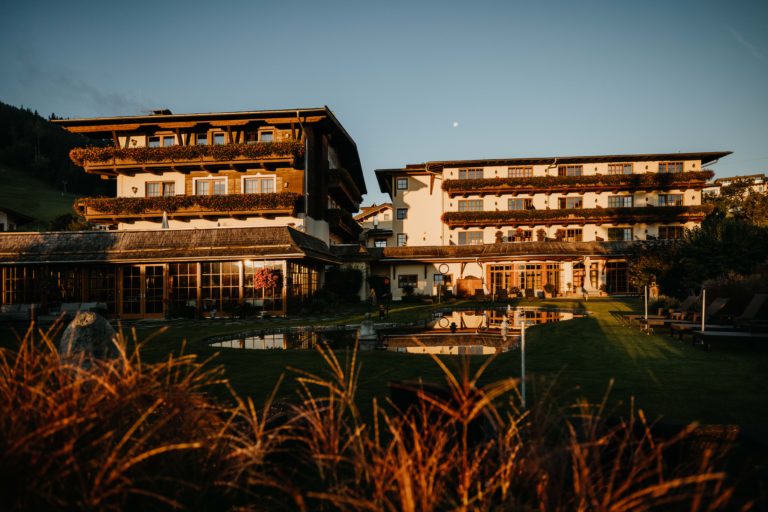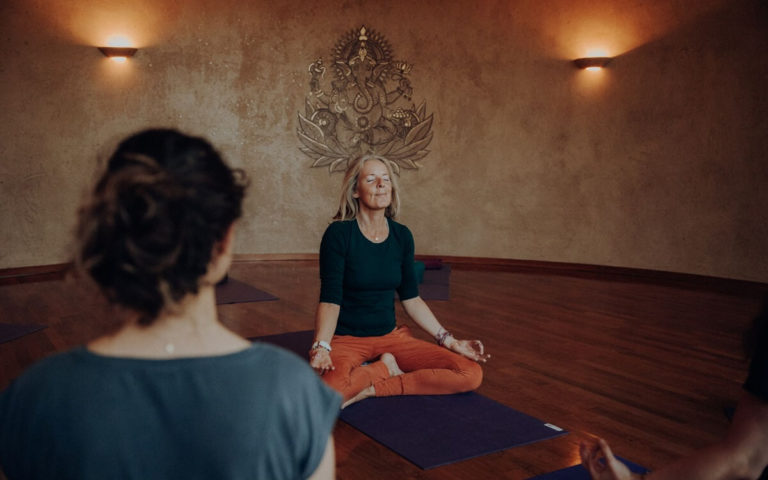Many different causes can be the reason for hair loss. According to Ayurvedic teachings, it is a symptom of imbalance in the human organism. You can find out how Ayurveda can help you with hair loss in a natural way here.
Hair loss from an Ayurvedic perspective
More than 60% of the population suffer from hair loss. One of the most common reasons for hair loss is a disharmony in the human organism. In most cases, this is a combination of several factors, with scalp problems, thyroid dysfunction or stress being possible causes.
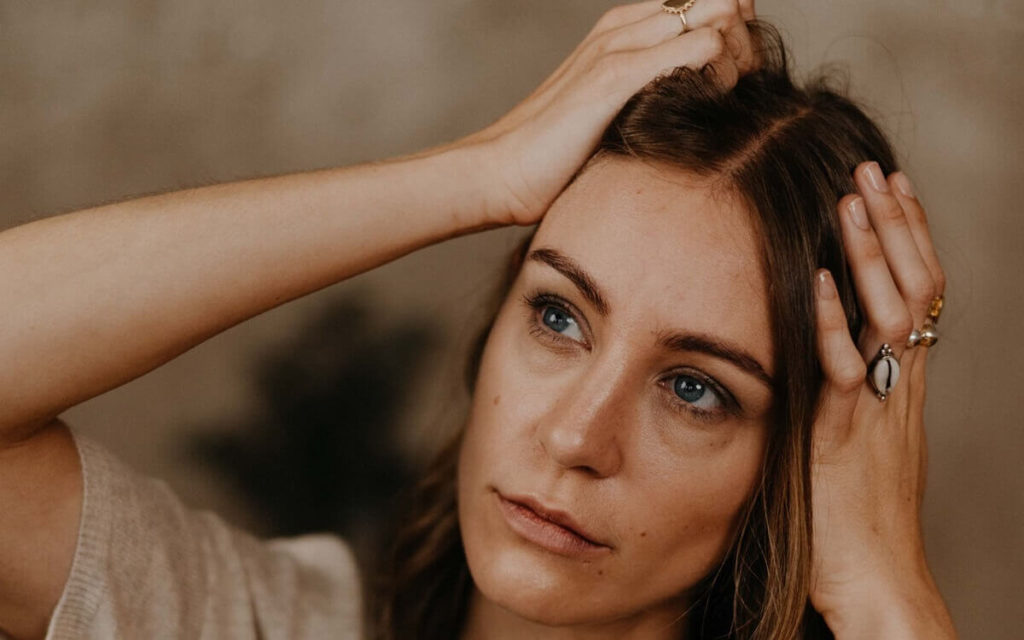

In addition to the cosmetic problem, hair loss can sometimes also lead to psychological problems. Self-doubt or reduced self-confidence go hand in hand with hair loss. As a full head of hair is considered an ideal of beauty, many of those affected feel less attractive with less hair.


Discover the European Ayurveda® Inner Beauty Home Treatment
Beauty comes from within! With the Inner Beauty Cure for an all-round radiance - make your skin and hair glow from within and learn healthy routines.
Possible causes of hair loss
Ayurvedic teachings list a variety of possible reasons that can lead to hair loss. These include stress, hormones, environmental influences, genetic conditions, alcoholism and excessive use of medication. By looking at the person as a whole, Ayurveda can be helpful in researching the causes of hair loss.
In Ayurveda, hair loss is seen as a symptom caused by an imbalance of the doshas. It is therefore an indication from your body that something is wrong and that you need to treat a problem. When determining the cause, you can use the tri-dosha principle as a guide. Your dosha type determines which lifestyle is good for you and what weakens you.
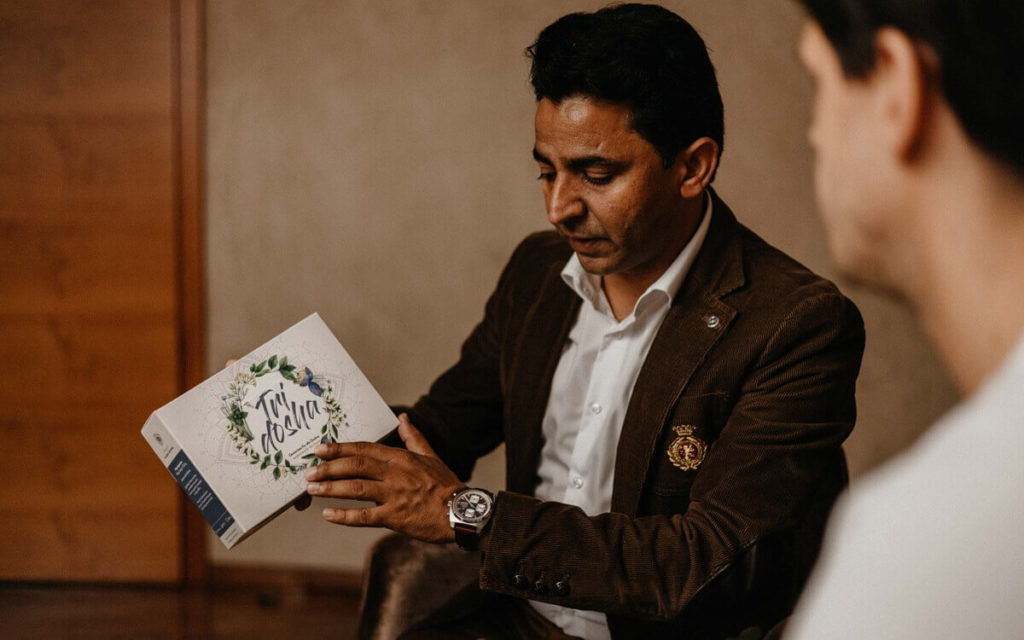

There is a wide range of products to combat hair loss or to strengthen the hair. Ayurveda is not only about healing, but above all about maintaining health. The cause of the problem should be identified holistically and then treated.
The hair types of the three doshas
Your dosha significantly influences the color, texture and general condition of your hair. For beautiful and healthy hair, we recommend matching your hair care to your dosha type:
- The Vata type tends to have fine, brittle and dry hair, often with a wavy or curly texture and a tendency towards a dry scalp. You should use a correspondingly moisturizing and gentle cleansing routine.
- As Pitta type you often have fine, soft, thick blonde or reddish hair that greys and falls out relatively early. Your entire skin - including your scalp - is usually well supplied with blood.
- Kapha types provide the perfect basis for a so-called lion's mane. You probably have full, strong hair and tend to have oily hair and scalp.
Cutting hair from an Ayurvedic perspective
Ayurvedic teachings recommend regular haircuts every 15 days. The procedure, which may sound time-consuming at first, has a number of advantages. In addition to hygienic reasons, the minimal shortening of the hair is sufficient to prevent split ends and frizz. It also keeps your hair healthier and stronger in the long term.
Ayurvedic treatment options against hair loss
Ayurvedic teachings focus on the causes of the problem and not just on combating the symptoms. Ayurveda uses oils and Indian herbs such as manjistha to combat hair loss. They relax your body and moisturize your scalp.
Another important aspect from an Ayurvedic point of view is the Ayurvedic diet. A lack of nutrients, stress or chronic inflammation - caused by a poor diet - can be causes of hair loss. Such factors can be overcome with a lifestyle that is geared towards your health.


Particularly effective against hair loss is also the Panchakarma cure. This form of treatment combines various methods. These include detoxification, massages, herbal supplements, meditation, yoga, special diets and hydrotherapy.
During this treatment, your body is cleansed from the inside in order to treat physical complaints or psychological stress holistically. Panchakarma is also a complete detoxification process in which toxins are removed from your body. Among other things, this can help combat hair loss.
The Ayurvedic diagnosis for hair loss
For the Ayurvedic diagnosis of hair loss , there is the possibility of a tongue, pulse, nail and face diagnosis. The pulse diagnosis provides a lot of information about the state of your organism. External details such as the appearance of the nails and skin also provide important information.
Before the diagnosis and treatment can even begin, you will have an anamnesis consultation with an Ayurvedic expert. During this consultation, all aspects relating to you and your health will be clarified. Only with a holistic picture can the right treatment method be chosen
7 tips to treat hair loss with Ayurveda
By taking a holistic view of you and your body in Ayurveda, the treatment starts with a comprehensive change. Ayurvedic teachings aim to treat the cause of the problem with targeted measures. This will keep your body healthy in the long term.


The following seven tips from Ayurveda can help to get hair loss under control:
1. ayurvedic nutrition
By changing your diet, you are taking a big step in the right direction. Your body needs valuable reserves that it can draw on to combat hair loss. Make sure you eat a varied diet and take in plenty of vitamins and minerals.
Iron-rich foods positively support your metabolism and therefore also help with hair loss. In addition to vegetables with lots of iron, quinoa, soy products and linseed are also excellent additions to your diet.
In Ayurveda, the following foods are considered valuable support for healthy hair:
- Spinach
- Sweet potatoes
- Avocados
- Nuts (especially almonds)
The following are also suitable for supporting the (primarily) female hormone system Shatavari against hair loss. The extract is also said to have a stress-reducing effect. It helps to alleviate hair loss during the menopause and relieve cramps during menstruation.
2. gentle hair care
A healthy scalp is crucial for successfully combating hair loss. Therefore, use gentle care and healing products such as special hair tonics with important mineral salts, amino acids and vitamins. Shampoos with aggressive surfactants, alcohol and silicones, on the other hand, can promote hair loss.
3. avoid stress
Too much stress has a negative effect on your body and can subsequently be the cause of hair loss. Good stress management with Ayurveda is therefore also important for beautiful hair.
If you have a busy daily routine, you can reduce your stress levels with scheduled meditation sessions. Targeted breathing exercises also help you to take conscious breaks and calm down.
4. sufficient sleep
Sufficient sleep is also important for a healthy organism. A lack of sleep disrupts your hormone synthesis and puts your hair follicles at risk. For an optimal sleep rhythm, it is best to follow the recommendations for your doshas.
5. head massages
There are various Ayurvedic head massages that can help with hair loss. However, every massage helps with relaxation, which regulates your hormone balance. The touch also stimulates blood flow to the hair roots , which promotes growth.
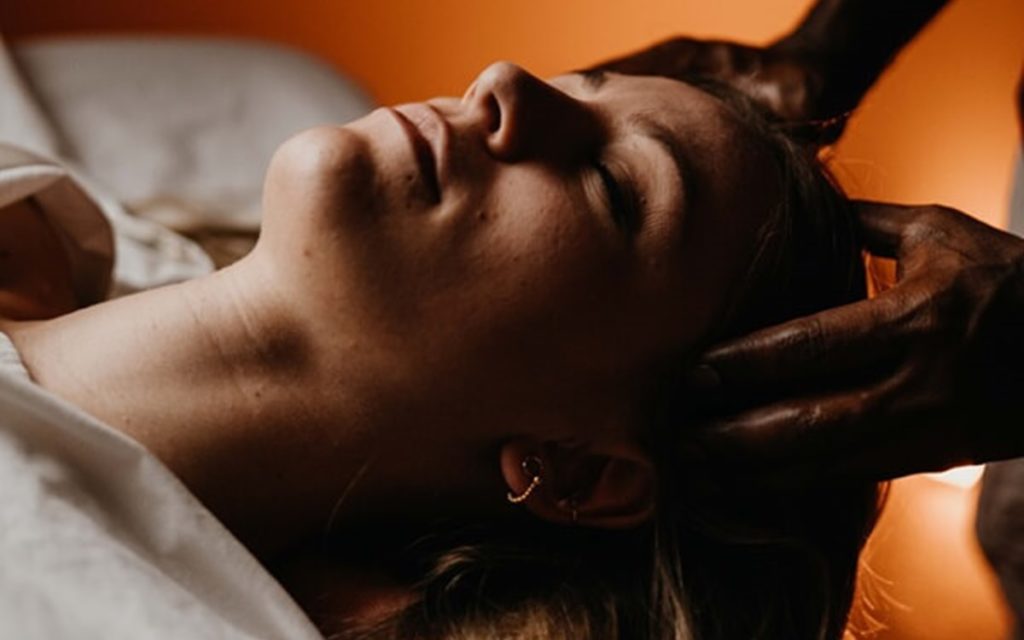

Instructions for an Ayurvedic head massage:
- Find a quiet place and sit down comfortably. Put some massage oil on the palms of your hands and then apply the oil to the center of your head with your fingers. From there, slowly spread it over the entire scalp with the flat of your hand. Now place your thumbs on your temples.
- Then apply a little pressure and let go again. Your fingers should be slightly fanned out - similar to when washing your hair.
- Now continue up to the forehead and massage the scalp in the area of the hairline using the same technique. Again, alternate the intensity with which you apply the pressure. Repeat the pressure and release movement five times.
- Move your hands further upwards and carefully massage your scalp bit by bit: on the sides, top and back.
- Move your hands further towards the center of your head and massage your scalp again with your fingertips. Massage the back of your head in the same way.
- As soon as you have reached the back of the head, return to the front and start the massage again. For the second pass, place your hands a little further apart. Perform the rhythm of pressing and releasing described above again.
To give the oil enough time to take effect after the massage, it is best to enjoy half an hour of conscious relaxation before washing it out. Avoid sudden temperature changes during this time.
6. compresses with natural oils
Cold compresses also promote blood circulation in the skin, which also stimulates the exchange of nutrients. Natural oils such as coconut oil, olive oil or almond oil are particularly suitable for this purpose. They have a calming effect and are considered to stimulate blood circulation.
7 Ayurvedic cures for hair loss
An Ayurvedic cure is best suited for professional treatment against hair loss. The traditional Panchakarma cure is a holistic treatment that uses warm oils and massages. Toxins are eliminated and vitalizing herbs are used to support the treatment.


